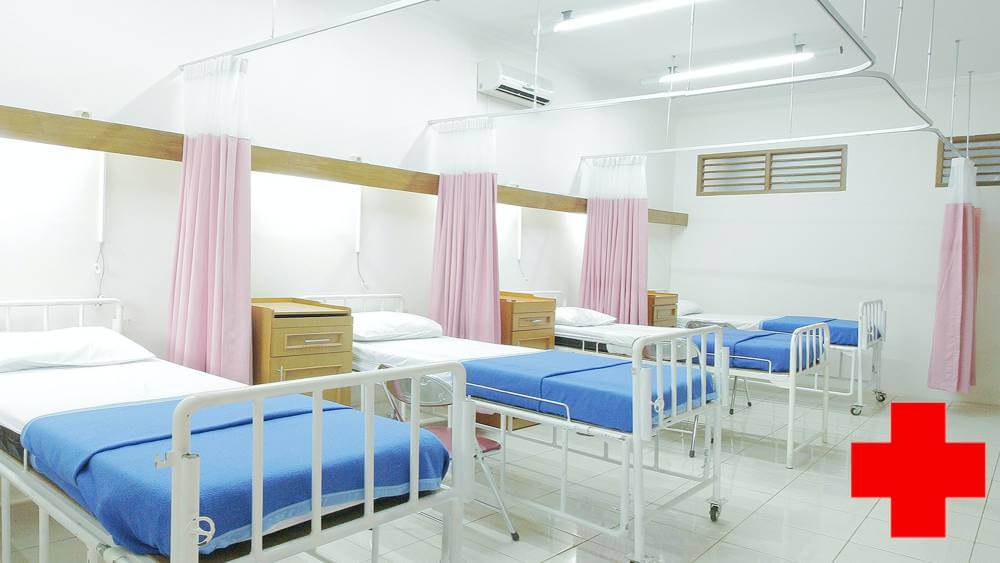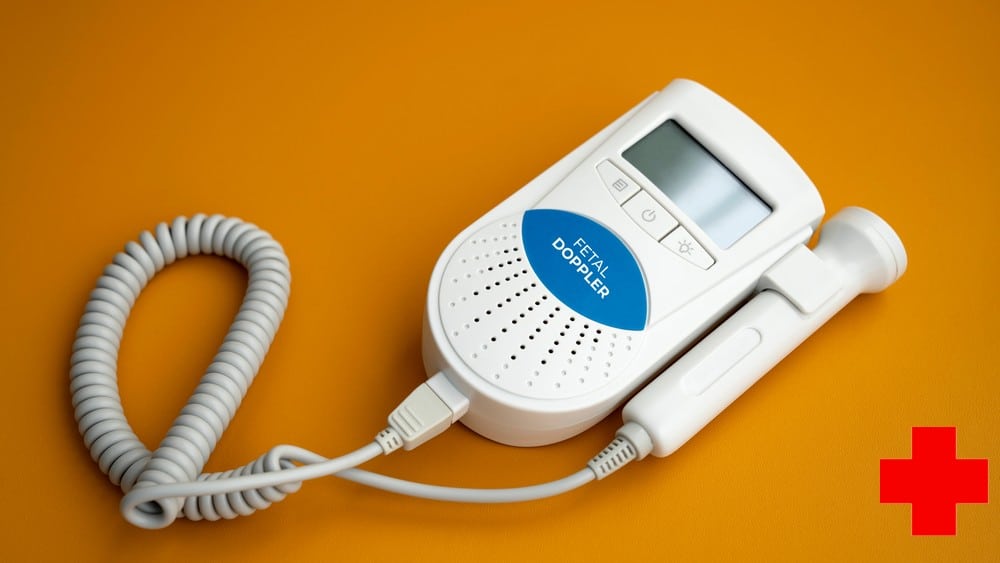Welcome to the ultimate PMHNP vs. FNP face-off!
We provide details on the contrast in their job description, roles, and work environment; we then finish up with the future outlook for both professions.
Reading this article will give you a detailed breakdown of the differences between a PMHNP and an FNP.
This article covers the following:
- Who is a PMHNP?
- Who is an FNP?
- Differences in Educational Requirements
- Differences in Certifications
- Future Outlook
This guide will offer you all the information you need.
Let’s get on with it, shall we?
Introduction PMHNP vs. FNP

The critical difference between the FNP and the PMHNP is what kind of patient they treat.
The Family Nurse Practitioner’s practice area includes patients seeking treatment for medical and physical-related problems such as a sore throat or stomach pain.
Both positions are concerned with illness treatment and prevention, and health promotion.
While Nurse Practitioners focus on the diagnosis and management of acute and chronic diseases, a PMHNP is a Mental Health Nurse Practitioner committed to health promotion through the identification of psychiatric issues, the prevention of mental health problems, and the provision of patient-centered mental health care.
Who is a Psychiatric Mental Health Nurse Practitioner?

A Psychiatric-Mental Health Nurse Practitioner is an Advanced Practice Registered Nurse trained to serve patients and their families with various mental health therapy in various settings.
PMHNPs, like FNPs, will treat patients of all ages, from infants to geriatrics, but their focus is on treating and increasing awareness of mental health disorders.
A Psychiatric-Mental Health Nurse Practitioner is trained to care for persons with mental diseases at any stage of their lives.
Nurse Practitioners are trained in health assessment, diagnosis, planning, and evaluation, and they commonly perform responsibilities similar to those performed by Doctors.
Nurse Practitioners’ scope varies from state to state, with rules ranging from unrestricted practice to limited or restricted practice.
PMHNPs, on the other hand, are mainly concerned with persons suffering from acute to chronic psychiatric disorders.
They also work with substance abuse disorders dealing with psychotherapy.
Who is a Family Nurse Practitioner?
An FNP is a professional that has completed a nursing program.
FNPs are APRNs who specialize in delivering family-centered health care to patients of all ages, including babies, adolescents, adults, and the elderly.
Family Nurse Practitioners provide patient care in several settings, including home health, hospitals, offices, industry, schools, and community organizations.
FNPs keep track of patients’ medical records, conduct physical examinations, order or execute diagnostic tests, write prescriptions, create treatment plans, and treat acute and chronic illnesses, disorders, and injuries that fall under primary care.
FNPs operate in various settings to promote general health, including community health clinics, private practice, healthcare organizations, and institutions.
Differences in Education Requirements

You must first obtain a registered nursing license before becoming a PMHNP(RN).
The initial level is a BSN, followed by an MSN with a concentration in Psychiatric Nurse Practitioner.
An associate’s degree, a diploma, or a four-year Bachelor of Science in Nursing are required.
Once you’ve completed your program, you’ll be qualified to take the RN license exam.
Before taking and passing the NCLEX-RN exam to become Certified Registered Nurses, most FNPs complete a Bachelor’s Degree in Nursing.
To work as a Family Nurse Practitioner, you’ll require a Master’s degree (MSN).
Many institutions offer MSN Programs explicitly designed for Family Nurse Practitioners, typically last 1-3 years of the graduate-level coursework.
Knowledge of specialized equipment such as nebulizers or cardiac monitoring systems and experience as a Registered Nurse is necessary.
Whether you choose to finish a Master of Science in Nursing (MSN) or a Doctor of Nursing Practice (DNP) program and enroll part-time or full-time, both programs typically take 2 to 7 years.
Nurses interested in pursuing an advanced degree, such as a Master of Science in Nursing, should know the differences between an FNP and a PMHNP to select which is best for them.
Differences in Certification and Licenses

While many of the FNP and PMHNP licensure and certification stages are similar, the methodologies differ.
After acquiring an MSN, Practitioners must pass board certification exams given by organizations such as the American Nurses Credentialing Center (ANCC).
After completing these programs, at least 500 hours of faculty-supervised clinical hours are necessary for certification.
For both FNPs and PMHNPs, these post-graduate credentials are valid for five years, after which practitioners must successfully renew their certificates to continue practicing legally.
The ANCC for the Family Nurse Practitioner-Board Certified (FNP-BC) credential and the American Association of Nurse Practitioners for the FNP credential are the two organizations where FNPs can take their board certification exam (AANP).
Both organizations’ exams are competency-based, demanding applicants to demonstrate clinical expertise to assess, diagnose, and treat patients appropriately throughout their careers.
After completing an FNP program, you must get a license in the state you desire to practice.
PMHNPs must also complete an ANCC competency-based PMHNP board certification test that evaluates practical and theoretical knowledge.
Candidates who exhibit the essential abilities and clinical knowledge required to assess, diagnose and support patients with psychiatric treatment are awarded the accreditation of Psychiatric-Mental Health Nurse Practitioner-Board Certified (PMHNP-BC).
Work Environments and Job Duties

Work Environments
FNPs work in typical settings such as Doctor’s offices, hospitals, outpatient and inpatient care centers, and schools and universities.
They are advantageous to public and private medical practices since they can work with diverse patients.
PMHNPs can practice in both traditional and non-traditional settings.
PMHNPs may work in jails, community clinics, mental health clinics, hospitals, and Doctor’s offices.
PMHNPs also receive additional training to prepare them for the growing role of telehealth, which will allow them to conduct remote patient therapy, which is crucial because many people in the United States cannot visit mental health providers in person.
The majority of FNPs work in a medical office.
They work with people on a long-term basis.
They frequently come to know their patients intimately.
A PMHNP can also work in an office setting.
Some people work in outpatient or inpatient treatment facilities.
They might also work in emergency services.
Job Duties
FNPs work in various disciplines and provide treatment to patients throughout their lives.
Prescriptions, collecting and doing tests, devising treatment plans, and completing physical exams are just a few of an FNP’s tasks.
The FNP curriculum focuses on the care of pediatric patients, adults, and families.
FNPs may also handle various areas of the patient’s mental health and physical care.
FNPs can give restricted care plans and even prescribe drugs, but their scope of practice in mental health care is limited.
A patient’s long-term mental health treatment and psychotherapy will be provided by FNPs collaborating with other healthcare providers.
PMHNPs, like FNPs, will care for patients of all ages, from infants to the elderly, but their specialization is treating and raising awareness of mental health issues.
For mental health issues such as anxiety, depression, substance misuse, dementia, and many more, PMHNPs will recommend medication, treatment, and counseling. PMHNPs, unlike FNPs, can provide long-term care and psychotherapy.
Difference in Salaries

The typical level of experience required to practice full-time varies between an FNP and a PMHNP, reflected in each specialization’s expected compensation.
As of August 2021, FNPs earned median annual pay of $97,000, according to the compensation website PayScale.
They can receive a median yearly wage of almost $115,000 after an average of 9.8 years of employment, according to an AANP poll from 2020, including bonuses and incentives.
As of August 2021, PMHNPs earned an average yearly salary of roughly $99,200, according to PayScale.
According to the AANP, PMHNPs with 12.8 years of experience and the additional credentials required for Psychiatric Nurses can earn a median annual compensation of $137,000 by 2020.
Given the great demand for qualified Psychiatric Nurses, it’s no surprise that Mental Health Practitioners are well compensated.
Top earners can expect to make well over $120,000 per year, but they’ll need a lot of experience and education to get there.
Regardless, this pay expectation demonstrates how lucrative and financially gratifying the position can be, providing a tangible and reachable goal for those starting, even in small, rural health clinics.
The cost of education
Whether you pick the FNP or PMHNP path, your education could be costly.
A Family Nurse Practitioner degree could cost anywhere between $15,000 and $250,000.
A Psychiatric-Mental Health Nurse Practitioner program might cost anywhere from $17,000 to $255,000.
Your residence will influence the cost of your education in the state where you will be attending school.
Several universities offer discounts to in-state residents.
Job Outlook

The need for Nurses in the United States is rapidly expanding as more individuals gain access to medical insurance and the national average age rises.
This means that all parts of nursing are in high demand, but a mental health expert is likely the most wanted among all nursing professions.
This is partly due to how the stigma around mental health is slowly dissipating.
Still, it is also owing to an increase in the number of individuals, particularly young people, who require mental health assistance to deal with common illnesses like melancholy and anxiety.
This is an exciting and crucial professional path.
Nurses who want to provide patient-centered mental health therapy in collaboration with patients and often Primary Care Doctors are in great demand.
Psychiatric Mental Health Nurse Practitioners (PMHNPs) are in high demand during a global epidemic.
According to reports, Psychiatric Nurse Practitioners will be in high demand in 2021 and beyond.
According to the job outlook, Family Nurse Practitioners are expected to be in great demand.
One factor fueling the rising demand for FNPs is that the baby boomers are starting to retire.
The elderly can now enjoy longer lives because of modern medicine.
According to the Bureau of Labor Statistics, a Family Nurse Practitioner’s career prognosis indicates that they will be in high demand.
As a result, there is a greater need for preventative treatment, which an FNP may provide, and the co-morbidities that come with growing older.
Another issue is that the Association of American Medical Colleges predicts a 54,100 to 139,000 Physician shortage in the United States by 2033.
Advanced Practice Nurses, such as Family Nurse Practitioners, can benefit from this labor shortage.
There is a persistent scarcity of Mental Health Specialists, such as Psychiatrists, in the specialized mental health field.
Many people who desire to work as Psychiatric Mental Health Nurse Practitioners will be able to do so because of the scarcity.
The Association of American Medical Colleges estimates that by 2033, there will be a shortage of 41,900 specialty Physicians, including Psychiatrists.
The mental health of society faces issues as the world develops and grows more sophisticated.
Psychiatric Mental Health Nurse Practitioners are in higher demand than ever before in this unsettled environment.
Which specialty is better?

These programs have a variety of duties that might lead to various professional options.
A few factors, respect, quality of life, fair regulations and processes, and thankfulness, all contribute to comprehensive job satisfaction in our chosen profession.
Many people feel that assisting others offers them a tremendous sense of job fulfillment, which is all they require regarding health care.
Working as a Family Nurse Practitioner or Psychiatric Mental Health Nurse Practitioner allows you to provide the best possible treatment to patients at all periods of their lives.
You’ll see people at their best and their worst.
Whatever path you choose, professional fulfillment can come from knowing you were present when someone was at their most vulnerable.
You must identify what qualities are required to keep you happy at work.
Conclusion

Advanced Practice Nurses such as Family Nurse Practitioners and Psychiatric Mental Health Nurse Practitioners play a vital role in our healthcare system.
Although their educational paths are comparable, their fundamental ideologies are entirely different.
There are various factors to consider while choosing between the two.
Learn everything there is to know about the differences between FNP and PMHNP.
Remember that you should do what makes you happy, not what makes others happy, and you have the last say.
FAQs

What is a Family Psychiatric Nurse Practitioner’s work description?
PMHNPs ensure mental health from conception through death, including bereavement and end-of-life care. PMHNPs assist individuals, families, and populations through public health policy, program development, administration, practice, research, and public and future PMHNP workforce education.
Can a PMHNP work as an FNP?
Family Nurse Practitioners and Psychiatric-Mental Health Nurse Practitioners have certain commonalities, but they also have some differences. Family Nurse Practitioners and Psychiatric Mental Health Practitioners can assess, diagnose, and treat patients. Keep in mind that each state’s level of autonomy differs.
What do Psychiatric Nurse Practitioners do?
The PMHNP’s job is to assess, diagnose, and treat patient’s mental health problems.
For patients with mental health or drug abuse issues, many PMHNPs provide treatment and prescribe medications. They may provide physical examinations, diagnose illnesses, prescribe medications, and counsel patients on disease prevention and living a healthy lifestyle.
What is the difference between PMHNP vs. FNP salary?
The FNP gets $46.22 per hour on average, while the PMHNP earns roughly $53 per hour. These figures reflect the national average for these two occupations. What state you work in, if you have a specialty, and the setting you work all impact your hourly pay rate.
Is being a Psych NP worth it?
One of the main reasons someone aspires to become a Psychiatric Nurse is that they feel obligated to help others. Although it’s a challenging industry to break into, mental health nursing is one of the best ways to help others and make a difference in your community.
What soft skills do you need to make it in the Psych NP industry?
It may be difficult dealing with difficult and possibly unpleasant situations, but overcoming those challenges may be extremely rewarding as you positively influence many people at risk. Working in mental health is not for everyone. It takes a lot of mental toughness, tolerance, empathy, and a willingness to help others.
What is the difference between PMHNp and FNP?
FNPs can only do so much to assist individuals with mental health concerns or diseases. If an FNP determines that a patient requires psychotherapy, they will work with psychiatric professionals. A Family Nurse Practitioner’s scope of practice does not include treating a patient’s psychiatric or mental issues.
Which is better, FNP or PMHNP?
Select the best program that fits you.It has the potential to shape your career path for years to come. Both the FNP and PMHNP Programs could be beneficial. They offer a variety of services to those in need. Consider the above factors while deciding which is best for you.








